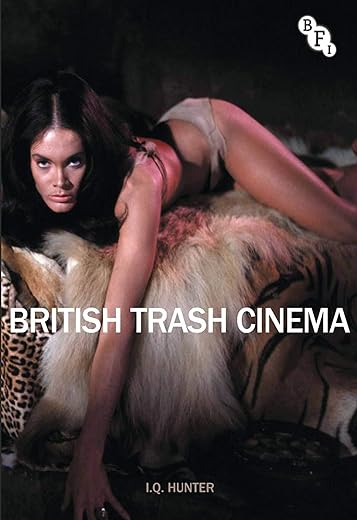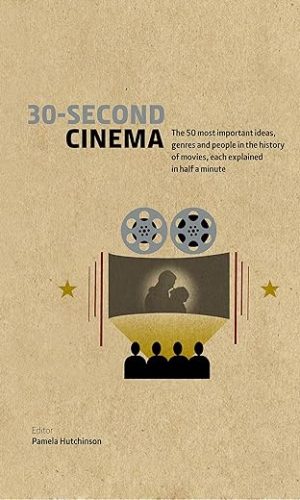British Trash Cinema
£23.70£24.70 (-4%)
BRITISH TRASH CINEMA is the first overview of the wilder shores of British exploitation and cult paracinema from the 1950s onwards. From obscure horror, science fiction and sexploitation, to art-house camp, Hammer’s prehistoric fantasies and the worst British films ever made, author I.Q. Hunter draws on rare archival material and new primary research to take us through the weird and wonderful world of British trash cinema. Beginning by outlining the definitions of trash films and their place in British film history, Hunter explores topics including: Hammer’s overlooked fantasy films, the emergence of the sexploitation film in the 1950s and 60s, the sex industry in the 1970s, Ken Russell’s high camp Gothic and erotic adaptations since the 1980s, gross-out comedies, revenge films, and contemporary straight-to-DVD horror and erotica.
Read more
Additional information
| Publisher | British Film Institute, 2013th edition (2 Aug. 2013) |
|---|---|
| Language | English |
| Paperback | 232 pages |
| ISBN-10 | 1844574156 |
| ISBN-13 | 978-1844574155 |
| Dimensions | 18.9 x 1.24 x 24.61 cm |










by M. J. A. Brough
A wry look at a subject neglected because no-one thought it worth studying in print.
As the author, a lecturer in film studies at the De Montfort University at Leicester, says, this could have been a book twice the length but what appears is more than satisfactory in terms of enlightening us about a film genre we hardly noticed, yet have revelled in to this day.
Taking a leaf out of Hunter’s book, I sat down to watch “Devil Girl from Mars” a few nights ago and then referred back to Hunter’s comments on the film; I can see exactly how the subject of these far-fetched offerings from British film makers captivated him and demanded of him that the book be written. It’s not great cinema but who would want to be without it? Above all, trash cinema is not trash.
It is a definitive treatment of the subject and very funny from time to time – a hoot, in fact.
by Adrian Smith
This is a terrific look into the movie predilections of the author, and is a welcome addition to the growing field of British cult film criticism. Written from both a personal and academic perspective, he covers important and neglected films, with special attention paid to the likes of Prehistoric Women and Psychomania. If you have any interest in the underbelly of British cinema this is an essential read. It makes a good companion piece to Offbeat, another recent book on British weirdness.